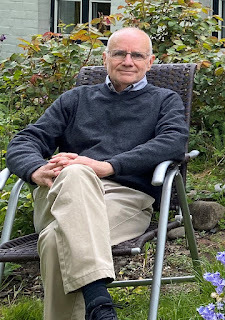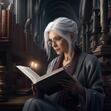Author Interview with David Wessel

Welcome Readers toanother installment of our author interview series. Today we have the pleasureof chatting with historical fiction author, David Wessel.
JMR-Welcome to theBooks Delight, David. Tell our readers where you live, what you do for fun andwhat does the perfect day look like?
DW- My home is insouthern New Hampshire, which I love in the spring, summer and fall. A perfectday involves an early morning walk in the woods with my wife of some 40 years,a late afternoon swim or kayaking on a nearby pond, and sipping a nice PinotNoir while watching the sunset – with lots of time for reading and writing inbetween. I escape the harsh New England winter by visiting my daughter, wholives in New Zealand, and pretty much seek the same pleasures, but also get toplay with her dogs and cats – she has two of each.

JMR-What’s yourfavorite historical time period? Why?
DW – Hands down, myfavorite historical era to read about – and the era I write about – is theperiod between the two world wars. Maybe because it is just far enough backthat it’s considered to be history but close enough to the present that forsome of my older family and friends it is the recent past, not yet history. Imarvel at how some things, like telephones and air travel, have changed so much in such a short time.And I wonder why some things, like prejudice and nationalism, don’t seem tohave changed at all.
JMR-Who is yourfavorite historical figure? Why? If you could ask them one question, what wouldit be?
DW- My favoritehistorical figure? That’s a tough question. There are so many figures to choosefrom. But I think it would be great to meet Orville and Wilbur Wright and askthem to speculate on how they thought their invention might be improved upon,what useful purposes might the airplane be put to, and if they thought it couldbe useful in future wars?
JMR- How did you cometo be a writer of historical fiction?
I was inspired to writemy family’s story of emigration from Germany to the United States during theinter-war years – and a desire to really understand why so many family membersdecided to stay put.
JMR- We are allaffected by the highs and lows in our lives. How has your lived life informedyour writing?
DW- My biggest personalhighs and lows have been family related – getting married, becoming a father,losing my parents and several siblings – rather than driven by external factorslike pandemics, economic recessions, and political unrest. So my focus inwriting is about how family dynamics and relationships change and how theycarry us through in good times and in bad.
JMR- Did you visitanyone of the places in your book? Where did you feel closest to yourcharacters?
DW- I found myselfdriven to visit the village my father and his parents left behind when theycame to America. I wanted to get a true sense of the area - its topography, itsculture, the smell of the air, a full feeling for the place. I came away withall that, but also a much closer feeling for my main characters - Dad, Opa andOma – who had lived there. And I got to meet some distant family membersrelated to those who never left Germany, so got my first good feeling for theones who chose to stay behind.
JMR- David, tell usabout your book, Choosing Sides.
DW- I think the summaryon the cover pretty much says it all. This is a novel about an ordinary familytorn apart by Hitler’s Germany. I first set out to write it as a family sagalike Winds of War by Herman Wouk or as biographical history like Unbrokenby Laura Hillenbrand. Or maybe as narrative non-fiction like Eric Larson’s Inthe Garden of Beasts. But as I gotinto it, I realized I did not have the source material – personal diaries,letters, newspaper accounts, family records, birth certificates, etc – toproperly document the family stories I wanted to share. So I set about writingit as historical fiction – “inspired by” or “based upon” family lore, set inthe historical context of a world rapidly going to hell in a handbasket.
JMR-What projects do youhave in the pipeline?
DW- I have a sequel inmind – as hinted at in the final four words of this book – “but that’s anotherstory.” As a follow-up to “Choosing Sides,” in which my father and otherfamily members make their decisions about where they wish to live out theirlives, the sequel will be called “Changing Sides” and will relate myfather’s post-World War 2 life working in the field of military intelligence.It’s a true story, but will again be historical fiction because he didn’t sharemany details of his life and career as a spy with us kids.
JMR- Tell our readershow to find you on media and the web.
DW- I hope readers willcheck out my website at www.davidkwessel.com,follow me on facebook (www.facebook.com/davidkwesselauthor)or on X/Twitter as @wessel4nh.
JMR- What question wereyou hoping I’d ask but didn’t?
DW- I think yourquestions have been great and I really don’t have anything I had hoped to beasked but was not. I do, however, sometimes get asked if I’m related to ordescended from the Nazi Party martyr who wrote the Party’s anthem, Das HorstWessel Lied. If you had asked that, I’d have given my standard, tongue-in-cheek,reply – the answer lies within the pages of my book, so you’ll just have toread it to get an answer. Thanks.
JMR- Thank you, David,for stopping by. Your books look really great!



